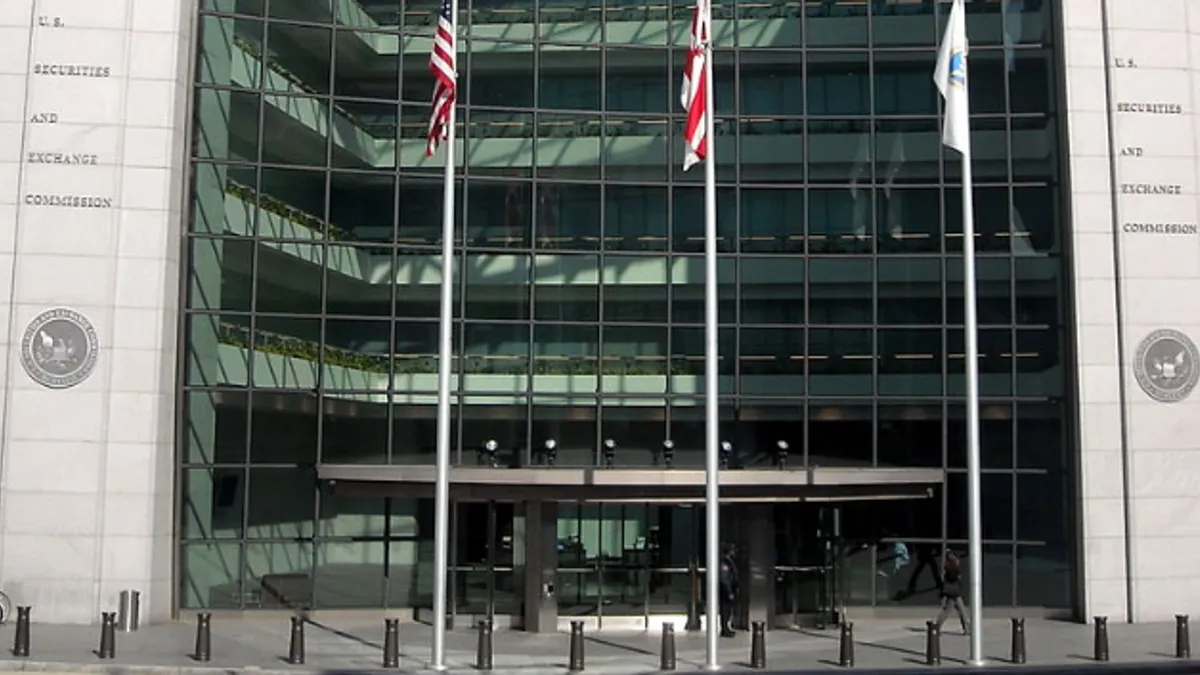Dive Brief:
- The Securities and Exchange Commission (SEC) has announced settlements with two public companies for violations that resulted in the improper reporting of quarterly earnings per share (EPS) that met or exceeded analyst consensus estimates.
- The actions are the first arising from investigations generated by what the SEC calls its EPS Initiative, which uses risk-based data analytics to uncover potential accounting and disclosure violations.
- In one action, the SEC says, Georgia-based Interface, a modular carpet manufacturer, made unsupported, manual accounting adjustments over multiple quarters in 2015 and 2016 that were not compliant with GAAP. In the second action, Pennsylvania-based Fulton Financial Corporation is said to have used a valuation allowance for its mortgage servicing rights in 2016 and 2017 public filings that was at odds with the valuation methodology described in the same filings.
Dive Insight:
In the Interface order, the company used unsupported, manual accounting adjustments when its internal forecasts indicated it would likely fall short of analyst consensus EPS estimates, the SEC says.
The adjustments boosted the company's income, making it possible for Interface to consistently report earnings meeting or exceeding consensus estimates.
The company's then-controller and chief accounting officer, Gregory Bauer, allegedly directed the unsupported adjustments, including those made to management bonus accruals and stock-based compensation accounts. In addition, the company's then-CFO, Patrick Lynch, caused Bauer to direct some of the unsupported entries.
Under the settlement, the company will pay a civil penalty of $5 million. Lynch and Bauer will pay civil penalties of $70,000 and $45,000 respectively and be suspended from appearing before the SEC as accountants, which includes not participating in the financial reporting or audits of public companies. Bauer can apply for reinstatement after three years and Lynch after one year.
Fulton violation
In its order against Fulton, the company in mid-2017 belatedly reversed its valuation allowance, increasing its EPS by a penny in a quarter when it otherwise would have fallen short of consensus estimates, the SEC says. The action created the misleading appearance of consistent earnings across multiple reporting periods.
"Public company financial reporting should not present a misleading picture of performance," Stephanie Avakian, director of the SEC's enforcement division, said.
In the SEC's order, the company agreed to pay a $1.5 million penalty.
The SEC says it plans to make more use of data analytic tools in its enforcement efforts because of its ability to spot potential improprieties, including improper accounting adjustments.
"While difficult to detect, improper quarterly adjustments can have a material impact on reported EPS and how investors view a company's reported financial results," associate director of the SEC's enforcement division Anita Bandy said.












